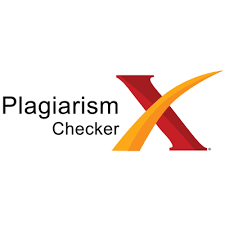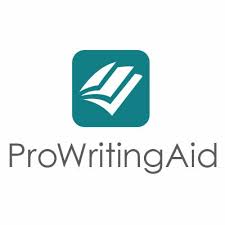IMPROVING INTENSIVE READING SKILLS WITH THE KNOW WANT TO KNOW LEARNED STRATEGY
Abstract
The problem in this study is the low intensive reading skills of students in Indonesian content which is below the KKM. This study aims to describe the difference in the effect of the intensive reading skills of students in the experimental class who received the Know Want To Know Learned learning strategy and the control class who did not receive the Know Want To Know Learned learning strategy and to describe the differences in the improvement of intensive reading skills of the experimental class students who used the strategy. Know Want To Know Learned learning with a control class that does not use the Know Want To Know Learned learning strategy. The method used is Quasi-Experimental, and the research design is Nonequivalent Control Group Design. The research subjects were 41 students of class V SD Negeri Cigarukgak. The instrument used in this research is a description test. The results showed that the posttest results were greater than the pretest results. There are differences in students' intensive reading skills after being given treatment using the Know Want To Know Learned learning strategy. The difference in increasing intensive reading skills can be seen from the results of the n-gain test, namely the medium category to the high category. There is a difference in the increase in students' intensive reading skills using the Know Want To Know Learned learning strategy.
Keywords
Full Text:
PDFReferences
Adlina, Z. (2011). Application of the Kwl (Know-Want To Knowlearned) Strategy For
Improving Students' Ability to Read the Qur'an Short Letter Class IV SDN 031 Pandau Jaya, Siak Hulu District: Thesis.
Arifin, Z. (2016). Evaluation of Learning (Principles, Techniques, and Procedures). Mold
Eighth, Jakarta: Rosda Karya.
Agustina. (2002). "Reading Learning (Theory and Practice)". Padang: FPBS
IKIP Padang.
Aida, Suprapti and Nasirun. (2018). Improving Early Reading Skills
Through Synthetic Analytic Structural Methods Using Audio-Visual Media: A Scientific Journal of Potentia. Vol. 3. No. 2.
Andreas. (2020). Enhancing Reading Comprehension through an Intensive Reading
Approach: HOW Journal. Vol. 27. No. 1.
Andriyanti, Y. (2021). The implementation of the KWL (Know-Want-Learned) method for
Improving Pemahamaan Bacaan in Siswa grade 2 in Primary School: Journal of Government, Development and Regional Innovation. Vol. 3. No. 2.
Arikunto. (2015). Research Procedures: A Practical Approach. Jakarta: Rineka
Create.
Arsyad, R. (2012). Creatively develop Learning Media. Jakarta:
Jakarta Reference .
Budianti, Y., and Damayanti, N. (2017). Influence of the KWL (Know Want to
Learn) to Students' Reading Skills and Interests. Indonesian Journal of Primary Education, 1(2), 13-18.
Dananjaya, U. (2017). Active Learning Media. Bandung: Nuance Publishers.
Fudzidri, Thahar and Abdurahmman. (2014). Improved Reading Skills
Understanding Through a CIRC Type Cooperative Learning Model for Class VIII MTSn Kamang Students of Agam District: Journal of Literature, Language and Learning. Vol. 2. No. 3.
Hanggara, A and Darsih, E. (2018). Basic Statistika Manual and SPSS. Brass:
Mujahid Press.
Haryadi and Zamzani. (2000). Improving Indonesian Language Skills.
Jakarta: Universias Open.
Henry G, T. (2008). Reading as a language skill. Bandung:
Space.
Karwono and Mularsih, H. (2017). Learning and Learning and Utilization
Learning Resources. Jakarta: PT Raja Grafindo Persada.
Kustandi and Bambang, S. (2013). Manual and Digital Learning Media.
Bogor: Ghalia Indonesia Publishers.
Lalremruati. (2019). Graphic Novels as Substitutions of Traditional Books to
Improve. India's Higher Education Authority UGC Approved. List of
Journals Serial Number 19. 1-5.
Lexy, M. (2006). Qualitative Research Methodology. Bandung: PT Remaja
Rosdakarya.
Masnur, M. (2012). Indonesian the Era of Globalization, Position, Function,
Coaching and Development. Jakarta: PT Bumi Aksara.
Melisa and Aswati. (2018). Improvement of Intensive Reading Skills With
Using the Know-Want To Know-Learned (KWL) Strategy in Grade III of State Elementary School 44 Padang Mardanikecamatan Lubuk Basung Agam Regency: Proceedings of the National Seminar and Discussion on Basic Education.
Nurhidayati. (2018). Thesis: Improving Intensive Reading Skills With
KWL Strategy ( Know - Want To Know - Learned ) Students of Class IV SD Negeri 48 Ampenan Academic Year 2017/2018.
Pujiono, S. (2013). Skilled Writing: An easy and practical way of writing.
Yogyakarta: Graha Ilmu.
Rahim, F. (2010). Teaching Reading in Elementary Schools. Jakarta: Bumi Aksara.
Rahmawati, L.E. (2009). Thesis: The Influence of Know Want To Learn (KWL) Strategies
and Direct Reading Activity (DRA) on reading comprehension ability
Reviewed from Reading Habits. Surakarta: Sebelas Maret University.
Ratnawulan, E,. And Rusdiana. (2015). Learning Evaluation. Bandung: CV
Faithful Library.
Rakhmawati, D. (2015). The Effectiveness Of Know-Want To Know-Learned
(KWL) Strategy In Reading Comprehension: A SMART. Vol. 1. No. 1.
Riyanto, Y. (2010). Educational Research Methodology. Surabaya: SIC Publishers.
Saddhono, K. (2012). Improve Indonesian Language Skills . Bandung: The Work of Putra Darwati.
Samniah, N. (2016). Ability to understand the content of readings of class VII MTs students
Private Labibia: Journal of Humanities. Vol. 1. No. 16.
Santosa, P. et al. (2007). Learning and Learning Materials Indonesian
SD. Malang: State University of Malang.
Sudarso. (2010). Effective speed reading systems. Jakarta: Gramedia.
Sugiyono. (2017). Statistics for Research. London: Alfabeta.
________. Quantitative Approach Educational Research Methods. London: Alfabeta.
Sundayana, R. (2018). Educational Research Statistics. London: Alfabeta.
Sujarweni, V. W. (2014). Research Methodology (Complete, Practical, and Easy to Understand). Yogyakarta: PT Pustaka Baru.
Supriyadi, E. (2014). SPSS + Amos. Jakarta: Publisher In Media.
Tarigan, H. (2008). Pragmatic Teaching. Bandung: Space.
Winarni, E, W. (2018). Qualitative Quantitative Research Theory and Practice. Jakarta:
Earth Script.
Yanti, N., Shuarto and Rio. (2018). Mastery of Skills Learning Materials
Indonesian Language S1 Pro Students in Indonesian Language and Literature Education FKIP Bengkulu University: Scientific Journal of Korpus. Vol. 2. No. 1.
Yuliantri, Putrayasa and Sudiana. (2017). Effect of KWL Strategy Use
(Know, Want, And Learn) Towards Reading Interest And Ability
Effective Reading of Fourth Grade Students in Cluster VIII of Sawan District: Journal of Indonesian Basic Education. Vol. 1. No. 2.
DOI: https://doi.org/10.30740/jee.v6i1.189
Refbacks
- There are currently no refbacks.

This work is licensed under a Creative Commons Attribution-ShareAlike 4.0 International License.







